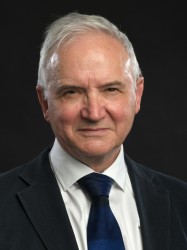BibTex format
@article{Chang:2022:10.1177/01945998211064275,
author = {Chang, CWD and McCoul, ED and Briggs, SE and Guardiani, EA and Durand, ML and Hadlock, TA and Hillel, AT and Kattar, N and Openshaw, PJM and Osazuwa-Peters, N and Poetker, DM and Shin, JJ and Chandrasekhar, SS and Bradford, CR and Brenner, MJ},
doi = {10.1177/01945998211064275},
journal = {Otolaryngology - Head and Neck Surgery},
pages = {803--820},
title = {Corticosteroid use in otolaryngology: current considerations during the COVID-19 era},
url = {http://dx.doi.org/10.1177/01945998211064275},
volume = {167},
year = {2022}
}

